At some point during their academic career, a student may encounter an academically challenging season and find themselves recommended for an academic support program. This can occur just once or twice when a subject is particularly difficult, or many students will find themselves regularly being challenged by academic expectations, especially as they grow in complexity. When this occurs, students can look to academic support programs in order to help them overcome these obstacles and improve their academic outcomes.
Academic support programs can look different from school to school but also from classroom to classroom, making it hard to navigate or choose what is best for your student. Let’s break down the basics of academic support programs.

What Is Academic Support?
Academic support refers to those educational services and initiatives that aim to increase the academic performance of students, particularly those at-risk students or those who struggle with ADHD or a learning difference. Academic support programs can also be a part of student support services, and it’s important to note that the definition of academic support can vary by school or program.
Academic support can encompass traditional educational strategies, like study skills courses and tutoring, as well as socio-emotional and behavioral support, like mental health services and community-building programs to increase the overall well-being and success of students. From time to time, schools offer a tiered approach depending on the level of support a student needs while also offering the flexibility for a student to move to an increased or decreased place of support as needed.
Academic support programs are available in a host of private schools but determining if it’s right for your student can be difficult. Some questions you may want to ask of the school are:
- Is there a study skills curriculum or just suggested strategies?
- Does my student receive 1:1 support or in a group?
- How large is the instructional group?
- What steps are taught in the class and how?
- How is student progress and skill development measured?
- Will my student miss out on a special or physical education to attend the class?
Because of the ambiguity of academic support programs and differing parent choice, students and their parents may choose to look outside of their school for the right learning support for their needs. For example, students of all grade levels can improve their grades and build essential skills by working with an academic coach. A qualified academic coach and executive function development program will help a student learn to become independent rather than just doing the work for the student.
Academic Support Program vs. 504 Plan vs. IEP
When discussing academic support systems, particularly in public schools, the term “IEP” or “504” will likely come up. An Individualized Education Program (IEP) is a program created for an individual student with a disability in order to outline how to support their special needs throughout the academic year. IEPs may outline accommodations, modifications, and interventions that include specialized procedures, instruction for learning, and changes to how and what the student learns.
IEPs are a part of the Individuals with Disabilities Education Act (IDEA), which requires that appropriate special education be provided to students with disabilities. Those disabilities can include attention-deficit hyperactivity disorder (ADHD), autism spectrum disorder, hearing impairment, developmental delays, and other conditions.
Academic support programs can be applied to an entire class or offered as an elective course inside or outside of the classroom, while an IEP is customized to one student and implemented in the school. Students who have an IEP can still benefit from academic support strategies and programs, which, in fact, may be included as a part of their IEP.
Academic support programs can have a positive impact on students achieving all levels of academic success, but they can have a particularly strong impact on those students without disabilities who struggle with a subject or fall behind for other reasons.
504 Plans
A 504 plan, which is short for Section 504 of the Americans with Disabilities Act, is a plan developed with the parents and school whereby students’ strengths, weaknesses, and accommodations are clearly defined. The 504 plan ensures the appropriate accommodations for the student’s disability are in place, ensuring equity in their learning experience. Accommodations can be specific to classroom size, seating, testing, and instructional supports, such as notes, note taking, extended time on tests and small group testing.
Schools typically require a psychological evaluation and/or documentation supporting a specific diagnosis to establish a 504 plan for a student. For students to receive extended time on standardized tests like those required for college admissions, they are often required to have utilized the same accommodation in secondary school to be approved by the ACT or College Board.
While a 504 plan can include academic support services, they are not always included. Supplemental instruction and services can also be provided by the school or directly by the parents. 504 plans and IEPs are the result of different laws and thus vary in implementation.
Multi-Tiered System of Supports
While there is no single national academic support model, many schools and districts do utilize the Multi-Tiered System of Supports (MTSS) in their classrooms. MTSS is an organizational framework that provides proactive identification and intervention for students who require academic support or behavioral support while creating a positive environment for all students. It is also called Response to Intervention (RTI).
The Center on Multi-Tiered System of Supports describes, “MTSS offers a framework for educators to engage in data-based decision making related to program improvement, high-quality instruction and intervention, social and emotional learning, and positive behavioral supports necessary to ensure positive outcomes for districts, schools, teachers, and students.”
The MTSS framework includes the following four components: screening, progress monitoring, multi-level prevention system, and data-based decision making. The MTSS framework identifies students as Tier 1, Tier 2, and Tier 3.
Tier 1 features the majority of the students in the classroom, who will receive grade-level appropriate instruction alongside appropriate social, emotional, and behavioral programming that can help all students. Teachers provide consistent core educational programming derived from research-based initiatives.
Tier 2 provides targeted, standardized interventions for the academic, social, emotional, and behavioral needs of at-risk students. These are the students who need a little extra assistance or need to catch up with their peers. They may utilize small group instruction or appropriate support programs for these students.
Tier 3 provides individualized interventions that start with thorough evaluation to understand why the student needs academic support or behavioral support, building a plan from there that may pull in outside resources.

Academic Support Programs by Grade
Elementary School Academic Support Programs
In elementary school, academic support programs can work in conjunction with essential screening programs that identify students who may be at-risk for academic difficulties. Elementary school students can benefit greatly from early intervention, allowing them to build better habits and not fall behind their peers.
Due to the age of elementary school students, they may also have the opportunity to attend before-school and afterschool programs. These programs may or may not provide direct academic support, and they can also help build stronger behavioral skills and a good attendance record.
Middle School Academic Support Programs
Middle school is a crucial time when it comes to determining academic outcomes, as this transitional time brings many new academic changes as well as socio-emotional pressures. Middle school students must balance a newfound independence with growing workloads, and these students can easily fall behind.
Middle school is also an important time when it comes to developing the key executive function skills, which correlate closely to study skills. Academic support programs can help students in middle school fully develop their study skills, so they can put them to good use in high school and beyond.
High School Academic Support Programs
In high school, academic support strategies and programs can take the form of preparation for the future, like through college preparation classes. For those students who might not pursue higher education, academic support programs can include career and technical education programs and academic advising to help them find their path after graduation.
College Academic Support Programs
Higher-education institutions typically feature robust academic support policies and academic support programs, although these programs can vary greatly between institutions. College and university academic support programs are typically housed under the student services office, which can direct students to the appropriate resources for more than just academic support services.
Separately, college students can count on academic advising for big picture support and direction, as well as planning to ensure on-time graduation and career plans for after college. Students can also seek out academic coaching for college students from experts like Effective Students, who can tailor their support based on course demands and student needs.
Types of Academic Support Programs
Academic support can take place in the classroom and at home in the form of informal strategies, or it can occur through curated programs. Below we explore the most common ways academic support programs occur.
High-Dosage Tutoring
High-dosage tutoring, also called high-impact tutoring, is the use of one-on-one (or small group) tutoring programs that meet at least three times a week to provide personalized support for students on specific subjects. Since the COVID-19 pandemic, high-dosage tutoring has been used in some schools to address learning loss in students.
This type of tutoring can have an immense impact as the tutor can form a sustained, close relationship with the student, identifying knowledge gaps and effectively addressing them. The tutor can see the student’s progress in real-time and adjust their academic support strategies as needed.
High-dosage tutoring can be a costly academic support program to implement, but it can have a large impact. The Annenberg Institute at Brown University reported that high-dosage tutoring is one of the few school-based interventions with demonstrated large positive effects on both math and reading achievement.”
Academic Coaching
Academic coaching is often confused with tutoring, but this type of academic support program does not focus on students learning specific content related to an academic subject. Instead, academic coaches work with students to develop the study skills and executive function skills needed in order to successfully manage their academic workload.
Academic coaching functions as a great academic support program for those students who need to develop accountability and independence. The skills they learn from an academic coach can be applied to other responsibilities in their lives, as students will understand how they can “work smarter” and better organize their responsibilities.
Academic coaching is typically not offered in the classroom setting but is instead provided by outside experts, like the team at Effective Students. Our academic coaches can work in conjunction with other programs, though, to ensure optimal academic support.
Afterschool Programs
According to Youth.gov, there are almost “10.2 million children and youth who participate in afterschool programs annually.” Afterschool and before-school programs can encompass a range of opportunities, from arts classes and STEM camps to academic coaching and tutoring. These all can serve as a controlled, safe environment where student needs are met, thus making them academic support programs.
The Afterschool Alliance further explains, “Afterschool and summer learning programs focus on the whole child, engaging students in enriching learning experiences that will help them reach their full potential.”

Attendance Improvement Programs
In the 2020 to 2021 school year, at least 14.7 million students experienced chronic absenteeism, meaning they missed at least 10% of school days, according to Attendance Works. Often these absences are excused but may also be unexcused or the result of suspensions. The academic impact of these absences is huge, as many students fall behind and never catch back up.
Chronic absenteeism programs are centered on establishing early intervention systems and building relationships with caregivers and communities. According to the Department of Education, chronic absenteeism programs can include the following strategies:
- Creating an absence communication system
- Building strong relationships with families
- Using an MTSS framework
- Creating positive environments
- Creating Continuity of Learning plans
Academic Support Programs from Effective Students
At Effective Students, we understand that academic support takes many forms depending on the needs of the students and the demands of the classroom environment. Our one-on-one academic coaching sessions are our top recommendation, as they work alongside a student to help them apply their academic management skills to current demands.
We also offer the Effective Student™ course, which teaches some of the essential study skills our coaches teach in an accessible format.
For educators looking to improve the academic support programs they offer, our Instructor Course for the Effective Student™ Curriculum includes everything teachers need to bring strong study skills into the classroom. The mini lessons that are included only take 15 minutes per week to implement!
Contact us to find the right academic support program for you.









